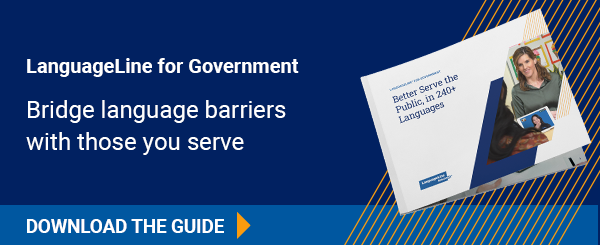We are in the midst of the time of year that has come to be known as “hurricane season.” Sadly, it is also a period when we are reminded that the needs of the Deaf and Hard of Hearing are sometimes minimized and even forgotten during an emergency.
Approximately 35 million Americans are hearing impaired. It has been well documented that training designed to help communicate with this community during a disaster is rare and frequently lacks standardization or integration into a formal emergency management plan.
All too often, crucial information is delivered infrequently or late, and it is often missing critical facts —if it is delivered at all. These dangerous communication gaps leave the deaf and hard of hearing with an incomplete understanding of what is happening, when it will happen, and what steps they are expected to take.
What can your community do to better communicate with the deaf and hard of hearing when faced with an emergency?
Are You Prepared?
Preparing an emergency management plan is a massive project. Regions that do not account for the Deaf and Hard of Hearing may simply be unaware of their specific needs.
Nonetheless, they should know that communicating with the deaf and hard of hearing during an emergency is a risk-management and compliance issue for cities, counties, and states. In fact, a failure to provide qualified interpreters or clear information to this audience is a violation of the Americans with Disabilities Act. Communities that do not fulfill this requirement put themselves at legal risk.
All relevant government agencies must be prepared in advance to provide qualified interpreters and other emergency services to ensure effective communication with the deaf and hard of hearing. In the event of an emergency, it is important to have professional American Sign Language (ASL) interpreters lined up and available rather than scrambling to find one at the last minute. The consequences of a disorganized approach can be deadly.
Immediate Steps
It is always best for agencies to formally integrate a comprehensive approach to communicating with the deaf and hard of hearing into their emergency management plans. If time is of the essence, here are a few fundamental channels that should be covered in the event of a crisis:
- Arrange in advance for a qualified ASL interpreter to be present during televised emergency announcements. Make sure the interpreter is actually on-screen during the broadcast.
- A large portion of the deaf and hard of hearing audience will turn to the internet for information. Remember to caption all videos that contain vital emergency information.
- Make sure that an ASL interpreter is made available at all shelters, either in person or via video.
READ: ASL Interpreters are a Connection to the Deaf Community that Should Not Be Compromised
LanguageLine Can Help
The Deaf and Hard of Hearing should always be considered during emergency preparations. LanugageLine helps our clients communicate clearly in moments of need. We deliver qualified onsite and video interpretation for ASL that ensures effective communication with the Deaf and Hard of Hearing. In fact, we provide on-demand mobile interpretation via tablet or smartphone in more than 240 languages. Please contact us to discuss opportunities to better prepare for emergencies.


